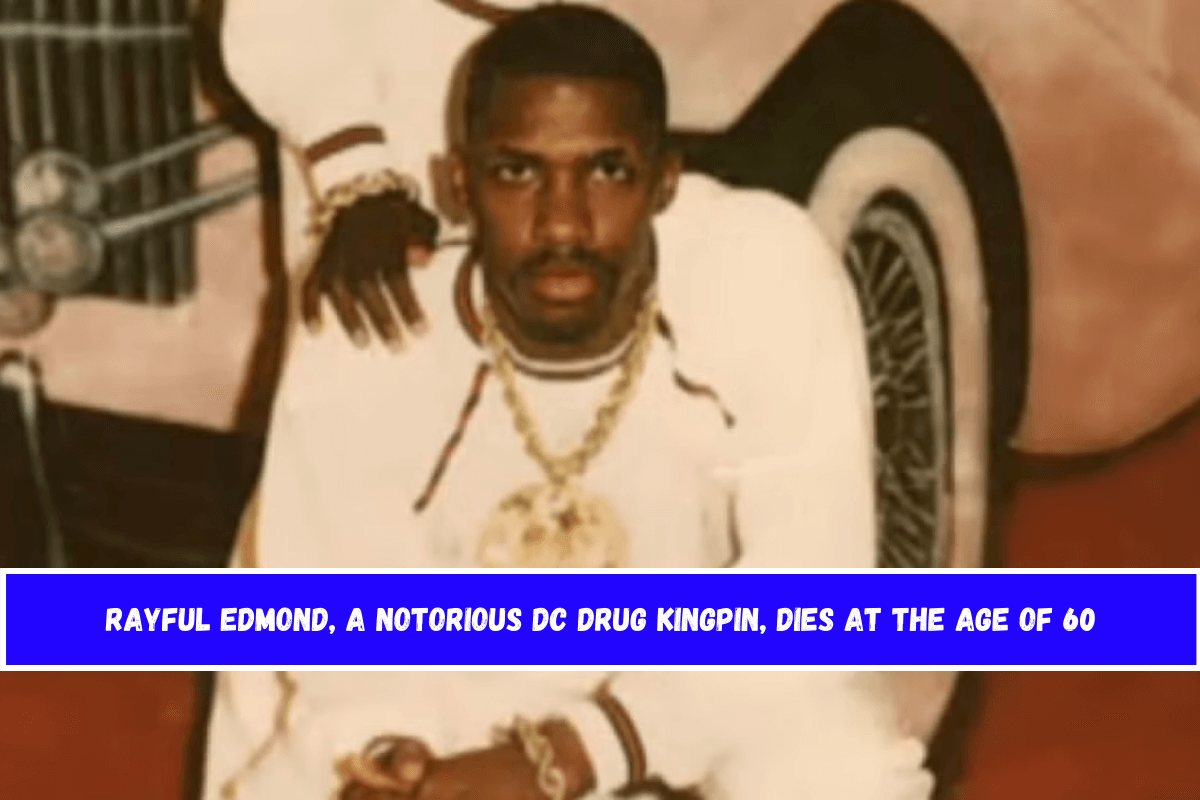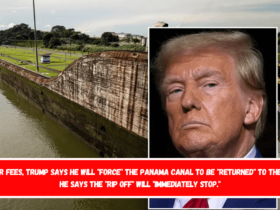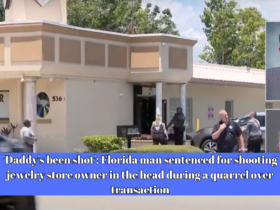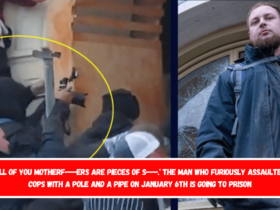Rayful Edmond, a notorious Washington, DC-based drug dealer from the 1980s, died in Florida while staying in a halfway home.
He was sixty.
Scott Taylor, a Federal Bureau of Prisons official, confirmed his death to The Independent but did not provide any other information.
“For safety, security, and privacy reasons, our office does not share specifics regarding the cause of death for any individual,” Taylor told me. The Miami-Dade County Medical Examiner’s Office informed The Independent that they did not have a record for the deceased.
Edmond was still in federal custody and had a projected release date of November 2025.
The drug dealer was sentenced to life in prison without the chance of parole after a jury found him guilty of conducting a criminal narcotics enterprise in 1990, which was thought to be the largest drug operation in Washington DC history. Edmond is thought to have controlled over one-third of the cocaine trade in Washington, DC during the crack epidemic.
When Edmond arrived in jail at the age of 25, he continued to run his drug operation from a maximum-security federal institution in Pennsylvania, smuggling drugs via the visitation area. He hired inmates whose girlfriends would transport the drugs in little balloons and deliver them to their boyfriends during contact visits.
When apprehended, Edmond cooperated with federal agents and described how he traded cocaine while in prison.
In a 60 Minutes interview, he admitted to perpetrating the crimes, telling the interviewer that he sold cocaine, crack, heroin, and marijuana from inside the prison walls.
“I did it all,” he stated during the interview.
Edmond planned and carried out the trafficking of over two tons of cocaine and crack from Colombia to Washington, DC, as well as distributing drugs to other prisoners.
“In some ways, he’s like the Babe Ruth of crack dealers,” Eric Holder, the former attorney general, said in the interview, describing Edmond’s ability to raise the amount of drugs he sold from inside prison.
“While in prison, he was doing roughly 400 kilos of cocaine each month, and on the street, he was doing about 300 kilograms at its peak.
“I think it’s much easier than when you’re on the street,” Edmond remarked of his accomplishments.
While at the facility, the felon conducted business with another notorious drug dealer, Osvaldo Trujillo-Blanco, the son of Griselda Blanco. After Trujillo-Blanco was released from prison, Edmond would contact him via the prison’s telephones. He’d phone a friend in DC, who’d put him in touch with Trujillo-Blanco in Colombia.
In answer to a query about the program, Holder told the interviewer that there weren’t enough prison staff to listen in on the phone calls, so the feds had no idea what the men were up to. Even so, Edmond communicated via code and Pig Latin.
When Trujillo-Blanco passed away, Edmond formed a business arrangement with another Cali Cartel convict.
A jailhouse informant eventually put an end to Edmond’s activities by reporting them to DC police and the FBI. When officials presented Edmond with the evidence, he cooperated and told them exactly how he conducted the operation, resulting in the arrest of 15 persons. He once entered the witness protection program and was transported to another facility using an alias.
He stated that he agreed to cooperate in order to help his mother and sisters, who assisted him in drug dealing, receive shorter prison sentences. Before being imprisoned, Edmond’s mother worked for the federal government and earned $40,000 per year, but she and her ex-husband peddled drugs while he was a child.
The drug kingpin told the 60 Minutes interviewer that he felt horrible about bringing drugs into his town, which resulted in some children being born addicted to crack.
As a result of his actions, the prison bureau formed a task team to investigate in-prison narcotics distribution.











Leave a Reply